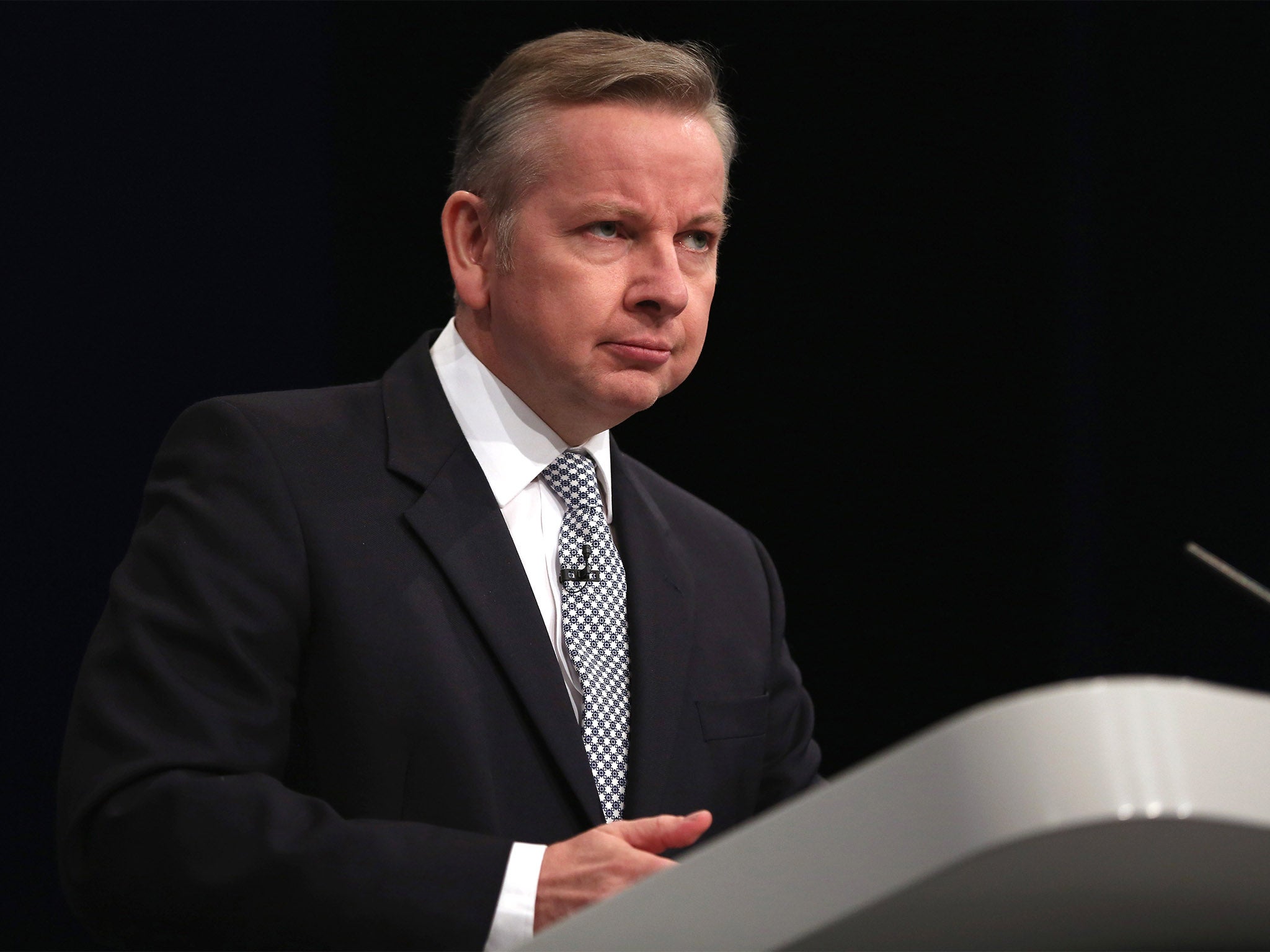Better Judgement: Equitable criminal justice is essential to our liberty. Michael Gove knows this, as his predecessor did not

Your support helps us to tell the story
From reproductive rights to climate change to Big Tech, The Independent is on the ground when the story is developing. Whether it's investigating the financials of Elon Musk's pro-Trump PAC or producing our latest documentary, 'The A Word', which shines a light on the American women fighting for reproductive rights, we know how important it is to parse out the facts from the messaging.
At such a critical moment in US history, we need reporters on the ground. Your donation allows us to keep sending journalists to speak to both sides of the story.
The Independent is trusted by Americans across the entire political spectrum. And unlike many other quality news outlets, we choose not to lock Americans out of our reporting and analysis with paywalls. We believe quality journalism should be available to everyone, paid for by those who can afford it.
Your support makes all the difference.It is clear with each passing week that Michael Gove, the Justice Secretary, has a major job on his hands: at every turn he seems to encounter a mess left by his predecessor, Chris Grayling.
The most recent disaster stems from attempts by Mr Grayling and his own predecessor, Ken Clarke, to reform the legal aid system, with the aim of saving £200m by 2018. The proposed changes include a significant reduction in the number of firms accredited to provide legal aid services, from more than 1,500 to fewer than 400. That alone provoked protest: many high street firms could go out of business.
Similarly, the number of contracts to provide 24-hour duty cover at police stations has been cut and interested firms forced into a bidding war. Yet it now emerges that the Legal Aid Agency’s handling of the procurement process may be subject to challenge from firms dissatisfied with its operation. A whistleblower claims that decisions were made by harried and overworked temporary staff with insufficient knowledge of the law. The upshot, ironically, may well be months of legal wrangling.
Of course, the legal aid system cannot be sacrosanct: on that Mr Grayling and Mr Clarke were both right. And yet the British criminal justice system seems increasingly beleaguered. There is rarely sympathy for lawyers, but the financial rewards for those dealing primarily with criminal cases are increasingly unattractive when compared with commercial work. Solicitors have already seen cuts of 8.75 per cent to their fees for taking on legal aid cases.
If one consequence of all this is that fewer talented lawyers pursue a career in criminal law, the impact will be keenly felt in courtrooms across the country: defendants who can’t afford an expensive brief will be inadequately represented; guilty men and women who can stump up the funds may find themselves with an increased chance of getting off. There should not be inequality in defence, yet cuts to legal aid make this more likely. Justice will suffer.
Can Mr Gove find a solution? With austerity very much alive and well, it will not be easy simply to reverse the cuts, though the Justice Secretary should at least consider pressing pause on some of the reforms. Mr Gove, after all, has already made clear that he knows his brief is underscored by a moral imperative. For Mr Grayling, justice seemed to be putting criminals behind bars as cheaply as possible and keeping them there: rough doesn’t begin to describe it. Mr Gove realises that the system is not simply about crime and punishment.
Perhaps appropriately, the former Education Secretary has already relaxed Mr Grayling’s bizarre policy which prohibited family and friends from sending books directly to prison inmates. The High Court ruled in February that the ban was unlawful and that books were central to prisoner rehabilitation. When he announced further change to the policy in July, Mr Gove made it clear that prisoners should be regarded as potential assets to society – not simply liabilities. It is this attitude of hope which appears to make him well suited to his current role.
Indeed, this week the Ministry of Justice indicated it was prepared fundamentally to reconsider the controversial court charge. The levy is fixed at £150 if someone pleads guilty to a criminal offence, but it can rise to £1,000 if they deny wrongdoing but are found guilty. This so-called “tax on justice” was another poorly informed, morally dubious and frankly foolish policy which was undermining our criminal justice system. Michael Gove may just be the man to rehabilitate it.
Join our commenting forum
Join thought-provoking conversations, follow other Independent readers and see their replies
Comments